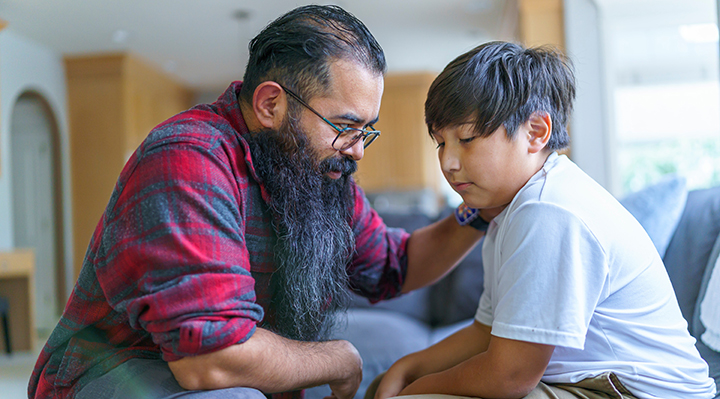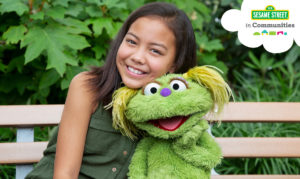How Gun Violence Is Affecting Your Child and What You Can Do to Help Them

Firearms have become the leading cause of death for U.S. children ages one to 19, and that includes all types of firearm-related deaths—homicide, suicide, unintentional, and undetermined. From 2019 to 2020, firearm-related deaths among children and adolescents increased a startling 29.5%. As the prevalence of gun violence has grown, so have children’s fears as they hear the horrific stories of violence happening in places where they once felt safe.
Gun violence is traumatic for people of all ages, and for children, it can be especially difficult to cope with these acts of violence. They are still going through fundamental developmental stages that teach them how to identify and process emotions, cope with big feelings, and develop a sense of safety. Gun violence leaves lifelong effects on children directly involved in these tragic events, and it can also affect children not directly involved in an act of gun violence.
How Does Gun Violence Affect a Child’s Mental Wellbeing?
Many children may now be questioning their safety during outings or activities they once enjoyed or found comfort in. They may be afraid of going to school, church, or common errands like going to the grocery store or mall. This can cause a constant sense of anxiousness, being on edge, or even frequent paranoia that something bad is going to happen.
The tragedies occurring around our nation from gun violence—whether or not a child experiences it firsthand—can lead to longterm emotional challenges, such as anxiety, post-traumatic stress disorder (PTSD), depression, and other mental health conditions. Some children experience secondary traumatic stress, which is emotional distress that results from hearing about trauma experienced by others. A child’s mental wellbeing is impacted and so is their physical health. We know that physical and mental health are connected and as one struggles, it often takes a toll on the other.
Every interaction we have from early childhood into adulthood helps shape our brains. Positive interactions are essential to building a strong foundation and strengthening our brain’s ability to withstand stress and adversity. Negative experiences such as abuse, exposure to violence, neglect, and parental substance use disorder can derail brain development. The brain isn’t just born, it’s built, and you can learn more about that process at this link.
The Impacts of Active Shooter Drills
In addition to the difficult feelings that come with gun violence, even preventative measures such as active shooter drills can negatively impact children’s mental wellbeing. These drills have become necessary due to the prevalence of school shootings – leaving children to carry the heavy burden of worrying about saving their own life or the lives of others. This alone can be a traumatic experience for youth of all ages. While a teenager may have some of the emotional tools and resilience needed to cope with this burden, young children could lose their sense of youth earlier.
While these drills can educate a child on what to do in an active shooter situation, we need better, more proactive solutions that prevent shootings in the first place.
How to Talk to Kids About Gun Violence
Creating an open and safe space to discuss tragic events helps kids feel safe. It also creates a strong foundation in your relationship for ongoing dialogue so that if your child has more questions or fears down the road, they know they can always come to you for answers and comfort. Below are some tips to help you have confident conversations and support your child.
- If a child in your care is showing awareness of a tragic event, have a discussion with them about it. Start by asking them what they’ve heard so you can avoid sharing unnecessary scary details by sticking with what they already know.
- Talk to them on their level. Avoid using words they might not understand or bringing up complex concepts that take away from your original conversation.
- Gently correct any misinformation. Remind them that not everything they hear is true and that it’s important for them to talk to a trusted adult when they have questions. Let them know you’re always a safe person to talk to so they will come to you first for factual information.
- Don’t sensationalize the event.
- Give them space to share their fears. Listen closely and tell them it’s okay to be worried. Reassure them, encourage them to focus on the present and remind them that they are safe.
- Monitor your own emotional reactions. Speak calmly while talking about scary topics to help them feel more at ease. Younger children may not be able to fully understand the danger of a traumatic event, but they will notice if caregivers are fearful and anxious. They will take their cue from what they observe in your reactions. If you do have an emotional reaction, own it and use it as an opportunity to talk through emotions and how to cope with them.
- Remind them that there are a lot more good people in the world than there are bad people. Let them know the world is a good place and sometimes people do bad things, but they are surrounded by people who love and care for them.
Proactive Ways You Can Help Kids Feel Safe
There are many things you can do preemptively so that when tragedy strikes, kids have some tools to help them cope and know how to communicate their needs. Here are some of the most important things you can start doing immediately:
- Try to limit their screen time and social media usage and be observant of what they are watching and reading. The news can be overwhelming. Watch or read age-appropriate news together and have a conversation about the information.
- Follow a routine and keep normalcy as much as possible. Predictability gives kids a sense of security.
- Talk to them about emotions and how they affect us. Teach them ways to manage their emotions and healthy outlets for when they feel difficult emotions like anger or fear.
 Practice coping skills with them to give them practical tools they can use in times of fear or distress. For example, breathing exercises, mindfulness, yoga, or art.
Practice coping skills with them to give them practical tools they can use in times of fear or distress. For example, breathing exercises, mindfulness, yoga, or art. - Practice gratitude. Regularly thinking about the things we are grateful for in life can give us a more positive outlook and help us feel happier. Click this link for a video with more information.
- Help them get involved in activities that give them a sense of community. Kids can find comfort and purpose in volunteering, sports, art classes, play dates, and other activities they can enjoy and gain new experiences from. Giving back to their own community develops an empathetic foundation.
- Model healthy habits such as exercise, getting plenty of sleep, eating a balanced and nutritious diet, and talking about your feelings. Click here for exercises you can do together.
- Be patient with them. Young children may regress emotionally. They may have difficulty sleeping, start wetting the bed, or display clingy behaviors. Continue to reassure them that they are safe, give them comfort, and don’t speak critically to them about their behaviors. If it becomes excessive or lasts over a long period of time without improvement, seek guidance from a professional.
What to Do If a Child Is Experiencing Mental Distress About Public Outings
If you’re noticing that a child in your care seems anxious about going places they once enjoyed or is showing overall fear about leaving the house, there are many ways you can step in to help them. Don’t let these fears linger—act quickly to help them before they reach a crisis.
- Validate your child’s worries. Remind them that it is ok to have those feelings sometimes and that others have those feelings too.
- Before going on your outing, walk them through what your outing will be like. Review the things you will see, the things you will do, and remind them of your presence and your commitment to keeping them safe.
- Identify a plan for what you will do if your child starts to feel unsafe. Speak to your child about what they can do to regain a sense of safety and what coping skills they can use on the outing to help them feel better.
- Watch for warning signs of mental distress. There are several behaviors you can observe to know if a child might be struggling—such as changes in sleeping or eating habits, increased irritability, lack of interest in activities they typically enjoy, or withdrawal from family and friends. Take a look at more warning signs here.
- If you’re noticing any of these signs, ask the child how they are doing. Ask what types of emotions they have been feeling. Give them a safe space to open up and have an honest conversation.
- Don’t wait to get professional help. Lean on resources such as your local community mental health center, your family physician, or call your insurance company and they can help connect you to services. Be sure to speak with a licensed medical and/or mental health professional.
More Resources to Help You Support Children and Yourself:
Below are several more resources you can take a look at for more information about helping kids develop coping skills, resilience and emotion regulation; more tips for talking to kids about gun violence; and understanding the impacts of trauma on brain development.
- Check out this series of videos from Camber (previously KVC Hospitals) therapists walking through several different coping skills and activities children and adults can use to cope with traumatic experiences.
- This link has easy activities to do with kids to help strengthen their brains and their ability to cope with adverse events like gun violence
- Use this guide to learn how to help a child develop an emotion regulation plan so they have a resource to lean on to help them feel safe and cope when feelings become overwhelming.
- Youth.gov provides several resources for helping youth cope after a mass shooting.
 Sesame Street In Communities provides activities and educational resources to help them talk about gun violence.
Sesame Street In Communities provides activities and educational resources to help them talk about gun violence.- The CDC has a section on its website that talks about adverse childhood experiences (ACEs) and violence prevention: cdc.gov/violenceprevention
- Healthychildren.org provides tips for how to ensure guns in your home are properly secured for safety as well as how to make sure your child is safe going to other homes that might have guns.
- Harvard’s Center for the Developing Child shares more education about the effects of toxic stress on brain development. Check it out here: developingchild.harvard.edu
About Camber (Previously KVC Hospitals)
For 30 years, Camber has helped thousands of kids and teens achieve mental health wellness through expert and compassionate treatment. Camber uses a patient-centered approach that works to heal the whole family unit when a child is struggling with depression, anxiety, suicidal thoughts, self-harming, the impacts of trauma, and other mental health needs. To learn more about our services including our internationally renowned expertise in trauma-informed care, visit cambermentalhealth.org or call us at 913-890-7468.





